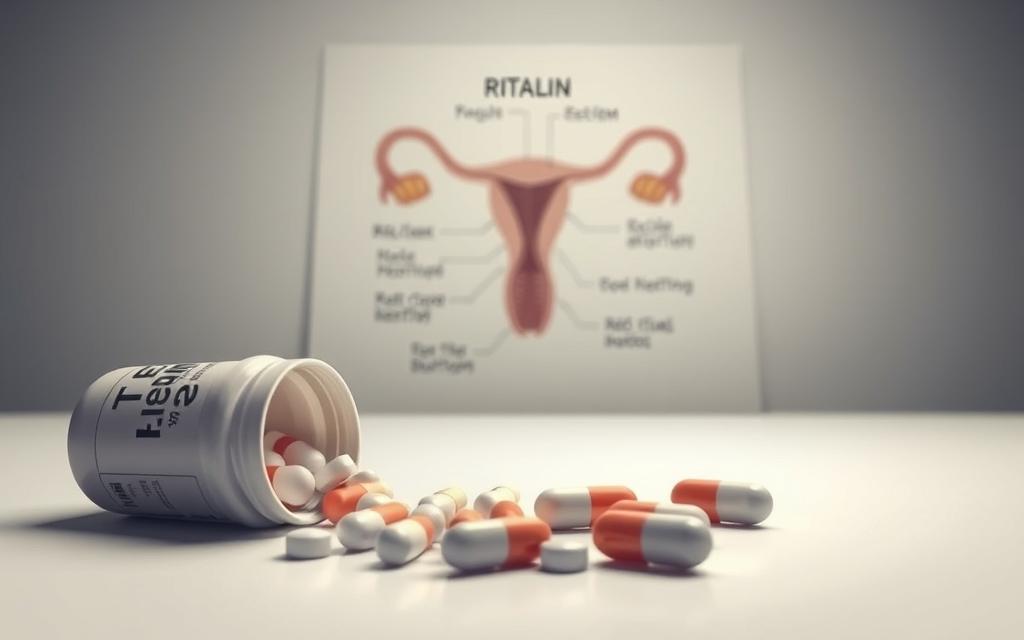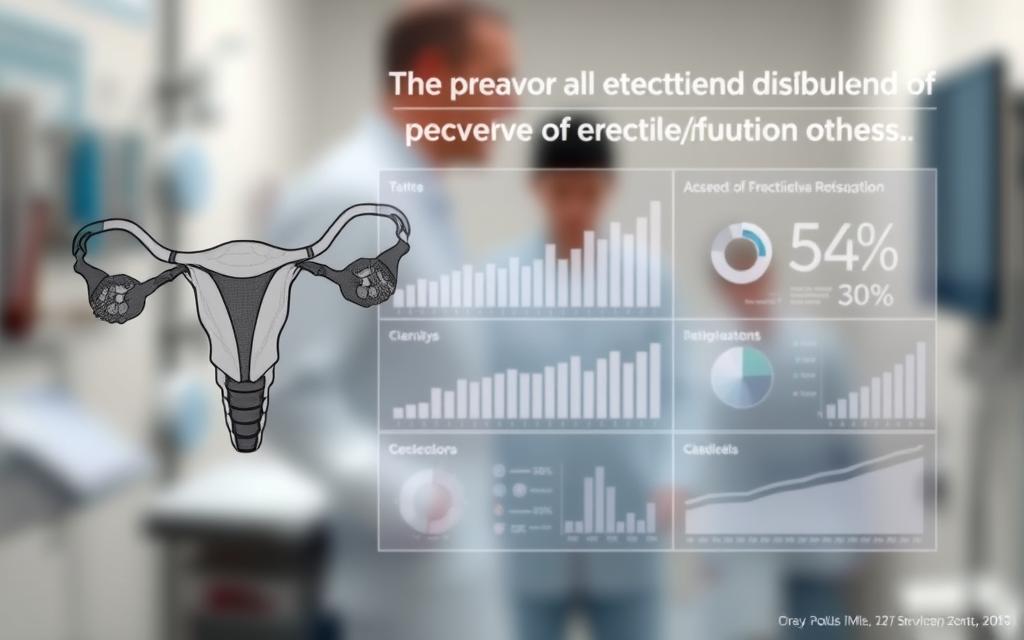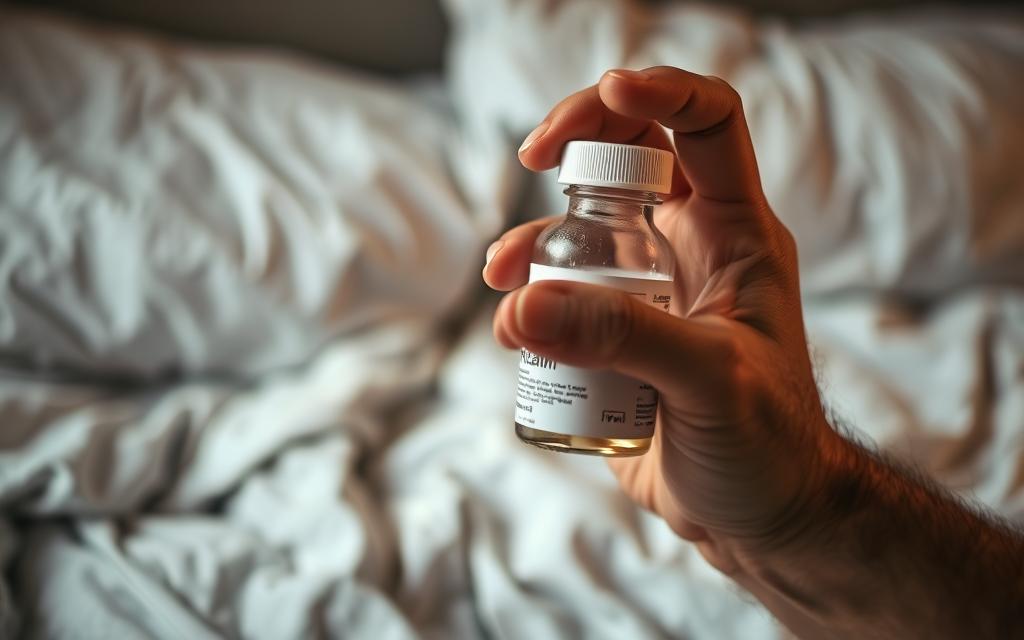Does Ritalin Cause Erectile Dysfunction? Side Effects & Sexual Health Risks
Ritalin, a commonly prescribed medication for Attention Deficit Hyperactivity Disorder (ADHD), has been a subject of concern regarding its potential impact on sexual health.
The medication is known for its effectiveness in managing ADHD symptoms, but its side effects on sexual health have raised questions among patients and healthcare providers.
Understanding the potential risks associated with Ritalin, including its impact on sexual function, is crucial for individuals taking this medication.
This article aims to explore the relationship between Ritalin and sexual health, including the potential causes of erectile dysfunction and other related side effects.
Understanding Ritalin and Its Primary Uses
Methylphenidate, commonly known by its brand name Ritalin, is a central nervous system stimulant prescribed primarily for ADHD treatment. To understand its effects, it’s essential to delve into its composition, formulations, and how it works in the brain.
What is Methylphenidate (Ritalin)?
Methylphenidate is the active ingredient in Ritalin, a medication that has been widely used for decades to manage ADHD and narcolepsy. Its efficacy in improving focus and reducing impulsivity and hyperactivity has made it a cornerstone in ADHD management.
Different Formulations and Dosages
Ritalin is available in various formulations, including immediate-release and extended-release tablets. The different formulations allow for tailored treatment plans based on individual patient needs, with dosages adjusted to achieve optimal therapeutic effects while minimizing side effects.
Approved Medical Uses for Ritalin
The primary medical uses for Ritalin include the treatment of ADHD and narcolepsy. Its ability to enhance focus, attention, and impulse control makes it an effective medication for managing ADHD symptoms.
How Ritalin Works in the Brain
Ritalin works by influencing brain function, particularly by increasing the levels of dopamine and norepinephrine in the brain. This action helps improve attention, concentration, and impulse control, thereby alleviating symptoms of ADHD.
Does Ritalin Cause Erectile Dysfunction? Examining the Evidence
To understand whether Ritalin causes erectile dysfunction, it’s essential to examine the existing body of research. The relationship between Ritalin, a commonly prescribed medication for Attention Deficit Hyperactivity Disorder (ADHD), and sexual health has garnered significant attention in recent years.
Clinical Studies on Ritalin and Sexual Function
Several clinical studies have investigated the impact of Ritalin on sexual function. These studies often assess parameters such as erectile function, libido, and overall sexual satisfaction. While some studies suggest a link between Ritalin and sexual dysfunction, others report minimal effects.
Quality and Limitations of Current Research
The quality and limitations of current research on Ritalin and sexual function vary. Many studies are observational or based on self-reported data, which can introduce bias. Furthermore, the duration of these studies often limits the understanding of long-term effects.

Statistical Data on Reported Cases
Statistical data on reported cases of erectile dysfunction among Ritalin users indicate a range of prevalence rates. Some studies report higher rates of sexual dysfunction, while others find no significant difference compared to non-users.
Comparing Ritalin to Other ADHD Medications
When comparing Ritalin to other ADHD medications, the incidence of erectile dysfunction varies. Some medications may have a lower risk profile for sexual side effects, making them alternative options for patients experiencing such issues.
The Physiological Mechanisms Behind Potential Sexual Side Effects
Ritalin, a commonly prescribed stimulant medication, may influence sexual health through several physiological mechanisms. Understanding these mechanisms is crucial for identifying potential sexual side effects associated with Ritalin use.
How Stimulants Affect Blood Flow and Cardiovascular Function
Stimulants like Ritalin can affect blood flow and cardiovascular function, potentially impacting sexual performance. Increased heart rate and blood pressure are common effects of stimulants, which may alter blood flow to the genitals.
Neurotransmitter Changes and Sexual Function
Changes in neurotransmitter levels, particularly dopamine and serotonin, play a significant role in sexual function. Ritalin’s impact on these neurotransmitters may contribute to sexual side effects.
The Role of Dopamine in Sexual Health
Dopamine is a key neurotransmitter involved in sexual desire and arousal. Ritalin’s effect on dopamine levels may influence sexual health, potentially leading to changes in libido or erectile function.
Potential Impact on Hormonal Balance
Ritalin may also affect hormonal balance, which is essential for maintaining normal sexual function. Alterations in hormone levels could contribute to sexual side effects.
| Physiological Mechanism | Potential Sexual Side Effect |
|---|---|
| Altered Blood Flow | Erectile Dysfunction |
| Neurotransmitter Changes | Decreased Libido |
| Hormonal Imbalance | Sexual Arousal Issues |
Common Sexual Side Effects Associated with Ritalin
Ritalin, a commonly prescribed medication for ADHD, has been linked to various sexual side effects. These side effects can significantly impact the quality of life for individuals taking this medication.
Erectile Dysfunction: Prevalence and Presentation
Erectile dysfunction is one of the reported sexual side effects of Ritalin. Studies have shown that erectile dysfunction prevalence varies among individuals taking this medication. The presentation can range from mild to severe erectile dysfunction.
Decreased Libido and Sexual Desire
Decreased libido is another common issue faced by Ritalin users. This reduction in sexual desire can be distressing and affect relationships.

Ejaculatory and Orgasmic Difficulties
Ritalin users may also experience ejaculatory difficulties, including delayed ejaculation or an inability to ejaculate. Orgasmic difficulties can further contribute to sexual dissatisfaction.
Other Sexual Performance Issues
Other sexual performance issues associated with Ritalin include decreased arousal and sexual dissatisfaction. These issues can have a compounding effect on the overall sexual health of individuals.
Risk Factors That May Increase Sexual Side Effects
The risk of sexual side effects associated with Ritalin is not uniform and can be influenced by several key factors. Understanding these risk factors is crucial for individuals considering or already undergoing treatment with Ritalin.
Age and Baseline Sexual Function
Age is a significant factor that can influence the likelihood of experiencing sexual side effects. Older individuals may be more susceptible due to decreased physiological reserve and potential pre-existing cardiovascular or sexual health issues. Baseline sexual function also plays a critical role; individuals with pre-existing sexual dysfunction may be more likely to experience sexual side effects from Ritalin treatment.
Dosage and Duration of Treatment
The dosage and duration of Ritalin treatment can also impact the risk of sexual side effects. Higher doses may increase the risk due to greater alterations in neurotransmitter levels and cardiovascular effects. Similarly, longer treatment durations may lead to adaptations or changes in physiological responses that could influence sexual function.
Concurrent Medications and Drug Interactions
Concurrent use of other medications can interact with Ritalin, potentially increasing the risk of sexual side effects. For instance, certain antidepressants can interact with Ritalin, affecting sexual function. It’s essential for healthcare providers to review all medications when assessing the risk of sexual side effects.
Pre-existing Medical Conditions
Pre-existing medical conditions, particularly those affecting cardiovascular health or sexual function, can increase the risk of sexual side effects. Conditions such as hypertension, diabetes, or cardiovascular disease may predispose individuals to sexual dysfunction when taking Ritalin.
Managing Sexual Side Effects While Taking Ritalin
Addressing sexual health concerns while on Ritalin involves a combination of medication adjustments and lifestyle changes. Individuals experiencing sexual side effects from Ritalin can explore various strategies to mitigate these effects.
Dosage Adjustments and Medication Timing
One approach to managing sexual side effects is adjusting the dosage or timing of Ritalin intake. Lowering the dose or taking the medication at a different time of day may help alleviate symptoms. However, any changes should be made under the guidance of a healthcare provider to ensure that ADHD symptoms remain controlled.
Alternative ADHD Medications with Different Side Effect Profiles
For some patients, switching to a different ADHD medication may be beneficial. Alternative medications may have different side effect profiles, potentially reducing or eliminating sexual side effects. It’s essential to discuss the pros and cons of different medications with a healthcare provider.
Non-Pharmacological Approaches
Non-pharmacological strategies can also play a crucial role in managing sexual side effects. These may include counseling or therapy to address any underlying psychological issues, as well as lifestyle changes such as regular exercise and a balanced diet.
When to Consult a Healthcare Provider
If sexual side effects persist or significantly impact quality of life, it’s crucial to consult a healthcare provider. They can offer personalized guidance and help determine the best course of action to balance ADHD treatment with sexual health.
Long-term Sexual Health Considerations for Ritalin Users
Understanding the long-term effects of Ritalin on sexual health is crucial for individuals relying on this medication. While Ritalin is effective in managing ADHD symptoms, its prolonged use can have various implications for sexual well-being.
Reversibility of Sexual Side Effects
One critical aspect to consider is the reversibility of sexual side effects associated with Ritalin. Research suggests that some individuals may experience a return to normal sexual function upon discontinuing the medication. However, this is not universal, and some users may continue to experience sexual health issues.
Monitoring Sexual Health During Treatment
Regular monitoring of sexual health during Ritalin treatment is essential. Healthcare providers should be consulted if any sexual side effects are experienced, as adjustments to the treatment plan may be necessary.
Psychological Impact and Relationship Considerations
The psychological impact of sexual side effects should not be underestimated. Issues such as decreased libido or erectile dysfunction can affect an individual’s self-esteem and interpersonal relationships.
Balancing ADHD Treatment with Sexual Health
Balancing the need for effective ADHD management with the preservation of sexual health is a delicate task. Alternative treatments or adjustments to the current regimen may be explored to mitigate sexual side effects.
| Consideration | Action |
|---|---|
| Reversibility of Side Effects | Discontinue medication or adjust dosage |
| Monitoring Sexual Health | Regular check-ups with healthcare provider |
| Psychological Impact | Counseling or therapy |
| Balancing Treatment | Explore alternative ADHD treatments |
Ritalin and Sexual Health: Key Takeaways
Ritalin, a commonly prescribed medication for ADHD, has been linked to potential sexual health risks, including erectile dysfunction. Understanding the relationship between Ritalin and erectile dysfunction is crucial for individuals considering or currently undergoing treatment.
Throughout this article, we’ve examined the evidence suggesting that Ritalin may contribute to sexual side effects, explored the physiological mechanisms behind these effects, and discussed strategies for managing them. Being aware of the potential risks and benefits of Ritalin is essential for making informed decisions about one’s health.
By understanding the potential sexual health risks associated with Ritalin and knowing how to manage side effects, individuals can better navigate their treatment options and maintain overall well-being. Effective management may involve dosage adjustments, alternative medications, or non-pharmacological approaches, highlighting the importance of consulting a healthcare provider.
